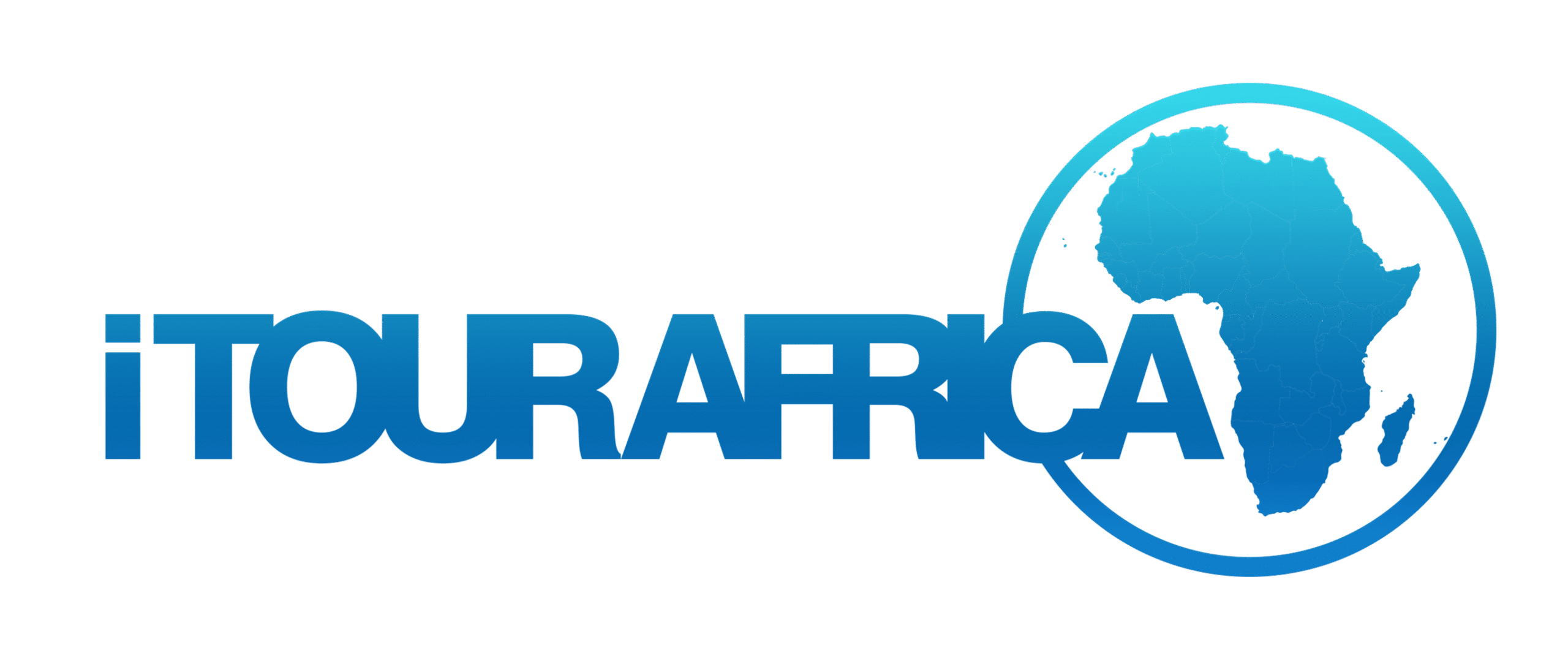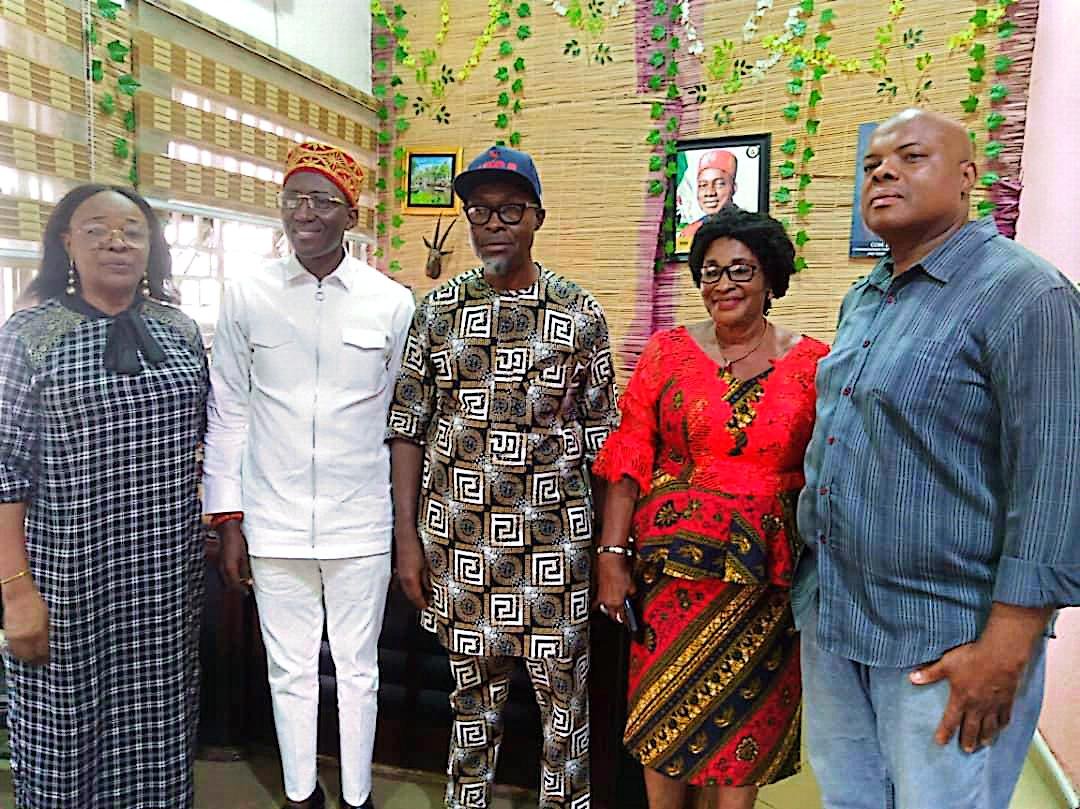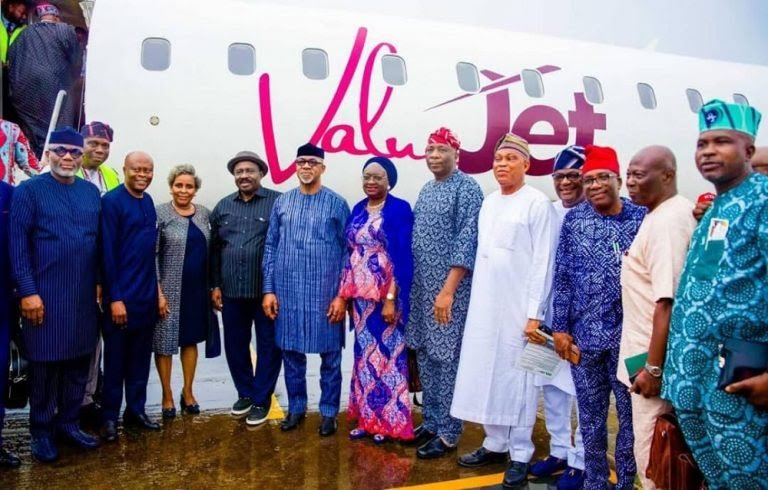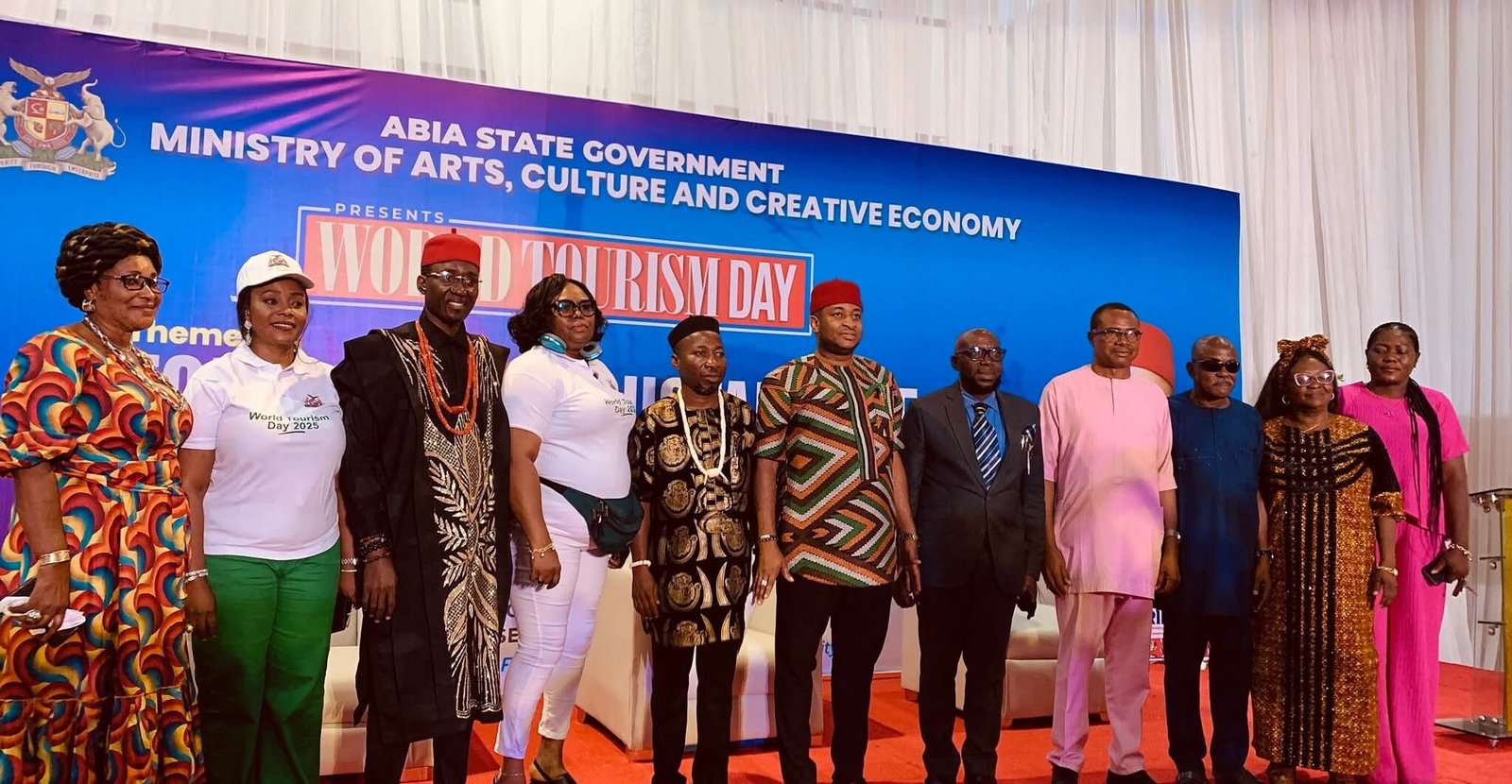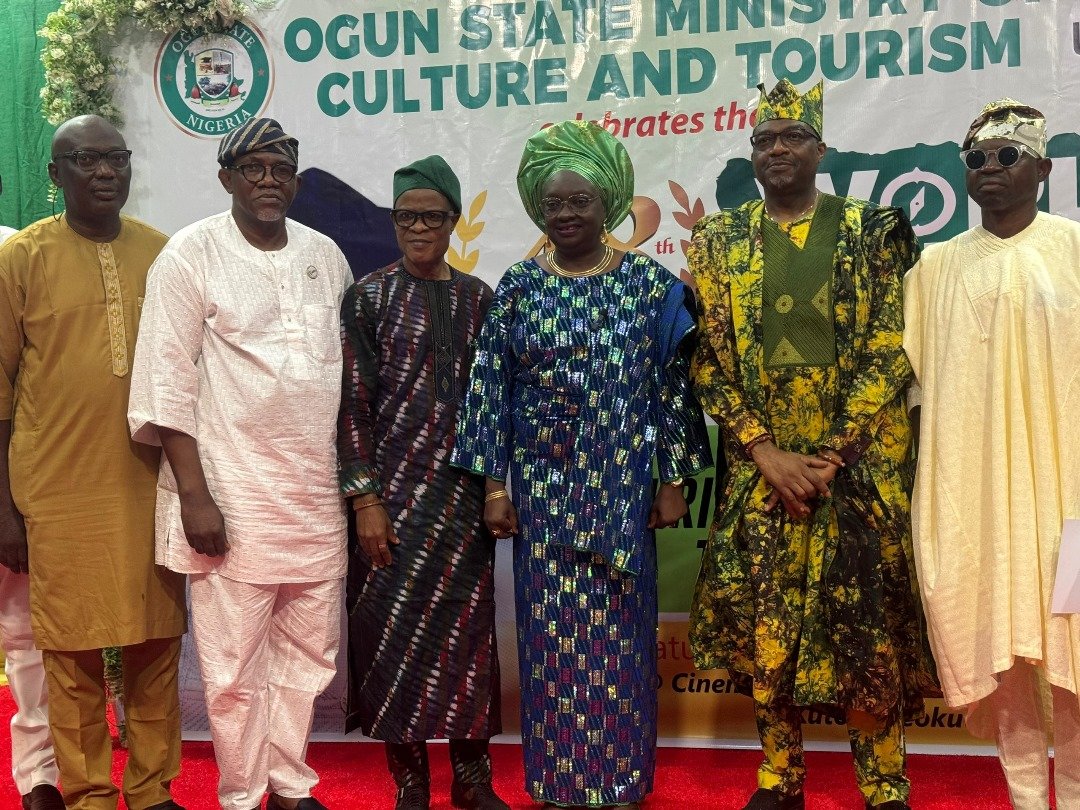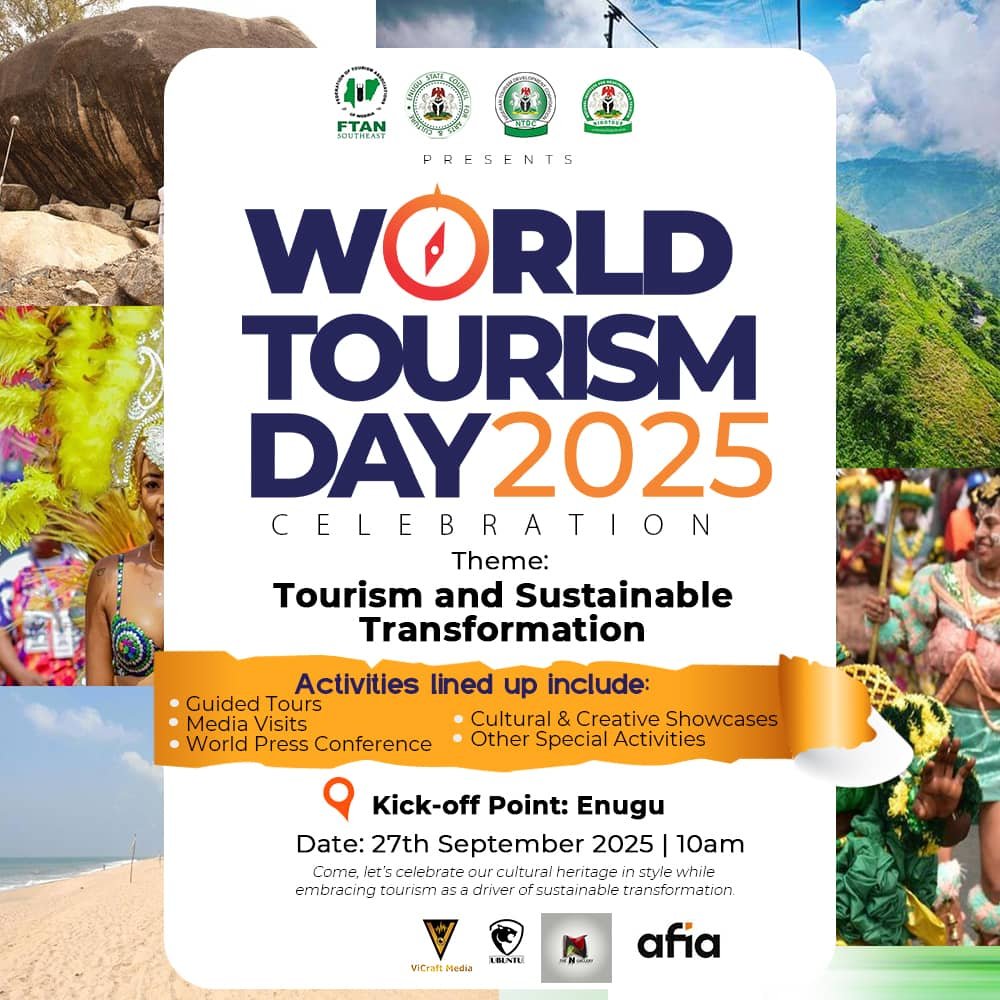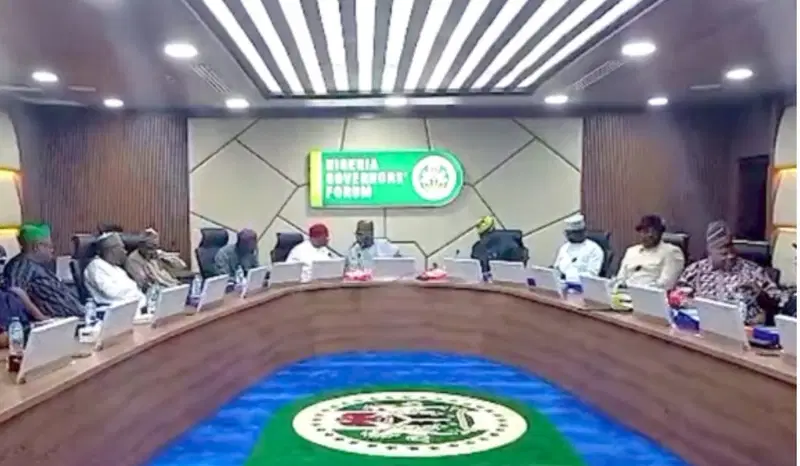
The Nigeria Governors’ Forum (NGF) has thrown its weight behind President Bola Ahmed Tinubu’s ambitious plan to grow the nation’s creative economy into a $100 billion powerhouse by 2030, with a target of generating over three million jobs for Nigerians.
In a communiqué issued at the end of its 5th meeting held on Wednesday, August 27, 2025, and signed by the Chairman of the Forum and Governor of Kwara State, Mallam AbdulRahman AbdulRazaq, the governors collectively endorsed the roadmap, describing it as a bold and transformative blueprint capable of reshaping Nigeria’s cultural and economic landscape.
Presentation on Creative Economy Roadmap
During the meeting, the Forum received a detailed presentation from the Honourable Minister of Arts, Culture, Tourism and the Creative Economy, Hannatu Musa Musawa. The Minister, represented by Mr. Obi Asika, Director-General of the National Council for Arts and Culture, unveiled the Strategic Roadmap designed to position Nigeria as a leading global hub for creativity, culture, and tourism.
According to the roadmap, the Federal Government is setting up a $200 million Creative Economy Development Fund, aimed at providing financing, training, and business development support for creatives across film, music, fashion, technology, and other artistic industries.
In addition, a $1billion Creative and Tourism Infrastructure Corporation will be established to drive large-scale projects such as world-class performance centers, creative hubs, museums, and tourism facilities across the country.
Mr. Asika explained that the roadmap is not merely an economic plan but also a cultural mission to showcase Nigeria’s rich heritage, talent, and innovation to the world. “This initiative will build a sustainable framework where Nigerian creatives can thrive, compete globally, and create meaningful opportunities for young people,” he stated.
Governors’ Commitment to Partnership
The governors acknowledged the potential of the creative economy to drive inclusive
growth, especially among Nigeria’s youth population, and pledged to support federal initiatives with state-level policies and infrastructure.
“The Forum recognizes the creative economy as a critical driver of national development and commits to collaborating with the Federal Government to achieve the ambitious $100 billion GDP contribution target by 2030,” the communiqué read.
Governor AbdulRazaq stressed the importance of synergy between federal and state governments in ensuring the roadmap’s success. He noted that with Nigeria’s vast pool of talented young people, the creative economy provides a unique opportunity to address unemployment and reposition the country for global competitiveness.
Strategic Objectives
The roadmap outlines key objectives, including:
- Expanding Access to Funding: Through the Creative Economy Development Fund, entrepreneurs, artists, and innovators will have access to grants, low-interest loans, and venture capital support.
- Infrastructure Development: The $1 billion corporation will focus on building creative cities, studios, theatres, and tourism clusters in different regions of the country.
- Skill Development: Partnerships with universities, polytechnics, and vocational centers will provide training programs to nurture emerging talent and build capacity for industry professionals.
- Global Promotion: Nigeria’s cultural exports, particularly in music, film, and fashion, will be strategically marketed abroad to boost foreign exchange earnings.
- Job Creation: The initiative aims to create over three million jobs directly and indirectly, spanning from content creation to hospitality and tourism services.
Unlocking Nigeria’s Soft Power
Stakeholders at the presentation emphasized that the plan goes beyond numbers, arguing that it is also about strengthening Nigeria’s soft power globally. Nigeria’s creative industries—especially Nollywood and Afrobeats—have already captured international attention, and the roadmap seeks to build on these successes with structured investments.Obi Asika highlighted that Nigeria could rival leading global creative hubs if proper structures and funding mechanisms are put in place. “From Lagos to Enugu, Kano to Port Harcourt, the creative spirit of Nigerians is unmatched. What we need now is deliberate investment to harness and export that energy on a global scale,” he said.
Challenges and Expectations
While applauding the roadmap, the governors also noted the challenges facing the creative economy, including inadequate infrastructure, piracy, lack of standardized training, and limited access to credit. They called for sustained commitment, transparency, and accountability in the implementation of the initiatives.
Analysts believe that if fully implemented, the roadmap could diversify Nigeria’seconomy, reduce over-dependence on oil, and position the country as a leading African and global creative powerhouse.
Looking Ahead
The endorsement by the Nigeria Governors’ Forum marks a critical milestone in the rollout of the Creative Economy Roadmap. With both federal and state governments aligning behind the initiative, attention will now shift to execution and delivery of the outlined projects.
For millions of young Nigerians aspiring to build careers in film, music, fashion, design, and digital creativity, the roadmap offers a renewed sense of hope. If the plan succeeds, Nigeria could emerge not just as Africa’s largest economy, but also as its cultural capital, exporting talent, ideas, and experiences to the world.
As Governor AbdulRazaq summarized, “The future of Nigeria’s economy is not just in oil or gas, but in the creativity of our people. We are committed to working with the Federal Government to ensure this roadmap becomes a reality.”
